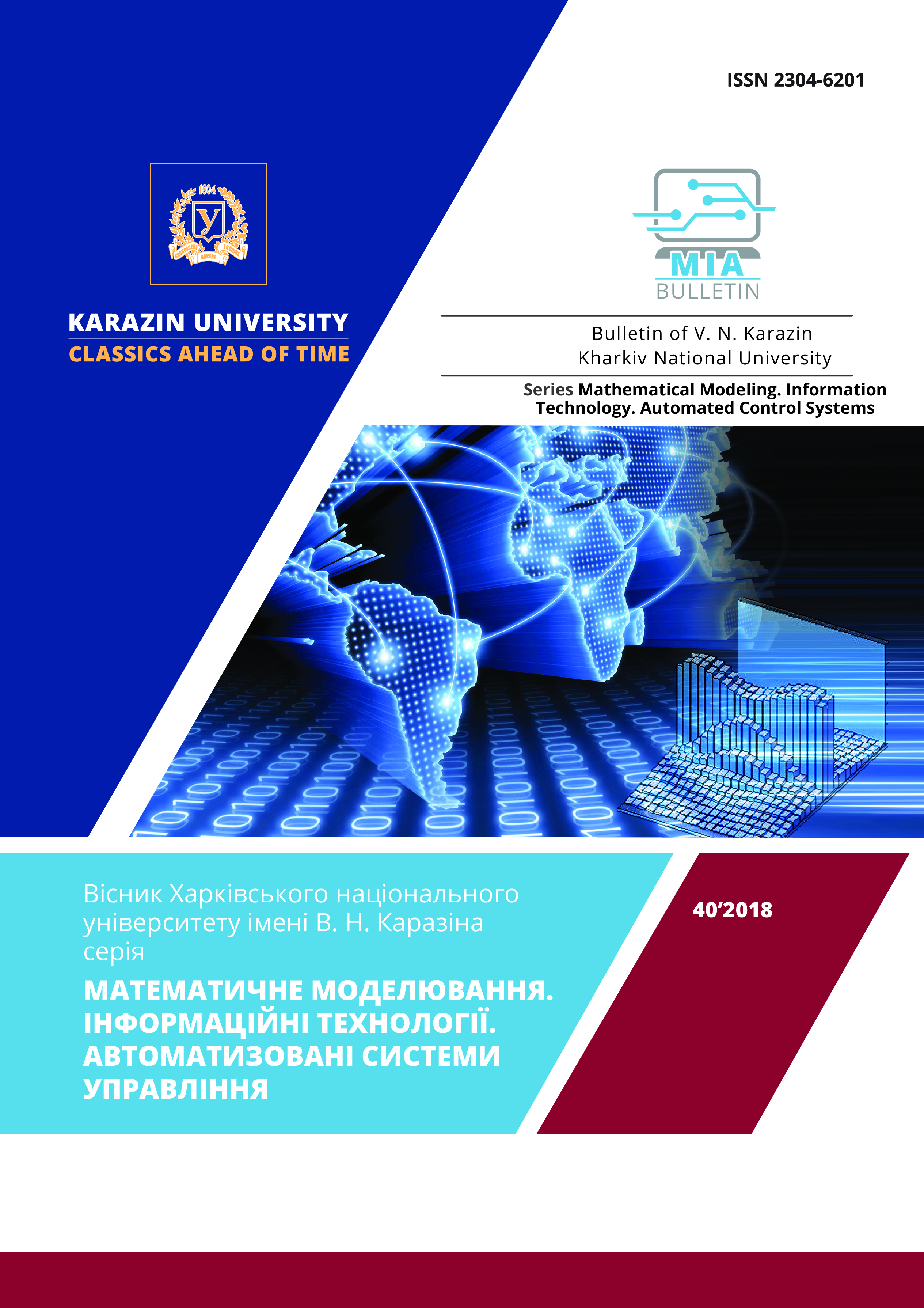An approach to assessment of dynamic software variability in mobile applications development
Abstract
The article describes the approach to the assessment of code reuse in Dynamic Product Line lines (DSPL). Some existing mechanisms to realize software variability in DSPL, such as machine learning, adaptive configurations based on Java programming tools which allow developing DSPL, especially in mobile applications domain, have been reviewed. During the development, some methods for the implementation of the variability specific to the selected programming language have been tested. For each of these mechanisms, such as Weighted Methods per Class, Response for a Class, Depth of Inheritance Tree, Coupling Between Objects, Number of Children, the code complexity metrics have been calculated. Based on these results the code reusability extent can be estimated for each of given variation mechanisms.
Downloads
References
/References
Sharma Y., “Emerging trends in mobile apps market and their potential impact on mobile users engagement in the global economy”, Sharma Y., Kumar B., Nivadit A. Annual Research Journal of SCMS , Vol. 5, March 2017.
Eleutério J., “A Comparative Study of Dynamic Software Product Line Solutions for Building Self-Adaptive Systems”, Technical Report in Eniversidade estadual de Campinas, 30 p. 2017.
A. M. Sharifloo, A. Metzger, C. Quinton, L. Baresi and K. Pohl, "Learning and Evolution in Dynamic Software Product Lines," 2016 IEEE/ACM 11th International Symposium on Software Engineering for Adaptive and Self-Managing Systems (SEAMS), Austin, TX, pp. 158-164, 2016.
Wenhao W. Master thesis: “React Native vs Flutter, cross-platform mobile application frameworks”, Metropolia University of Applied Sciences. / 01 March 2018.
Nandakumar A.N., “Constructing Relationship between Software Metrics and Code Reusability in Object Oriented Design”, International Journal of Advanced Computer Science and Applications, Vol. 7, No. 2, 2016.
Fangjun Wu, Tong Yi, "A Structural Complexity Metric for Software Components", First International Symposium on Data Privacy and e-Commerce, pp. 161-163, 2007.
Tkachuk M., “An Inte{grated Approach to Evaluation of Domain Modeling Methods and Tools for Improvement of Code Reusability in Software Development”, Tkachuk M., Martinkus I., Gamzayev R., Tkachuk A. // Heinrich C. Mayr, Martin Pinzger (Eds.): INFORMATIK 2016, Lecture Notes in Informatics, Vol. P-259: Kollen Druck+Verlag GmbH, Bonn, pp. 143-156, 2016.
Saaty T. L., “Relative Measurement and its Generalization in Decision Making: Why Pairwise Comparisons are Central in Mathematics for the Measurement of Intangible Factors - The Analytic Hierarchy/Network Process”, RACSAM (Review of the Royal Spanish Academy of Sciences, Series A, Mathematics), 2008.
Berg K., “A Critical Analysis of Using Feature Models for Variability Management”, Berg K., Muthig D., Submitted to SPLC-Europe, 2005.
Martinkus I., “Designing software product lines using domain modeling and code reuse metrics”, Iryna Martinkus, Mykola Tkachuk, Rustam Gamzaev, Systems of control, navigation and communication,Vol. 3(43), pp. 93-97, 2017.
Mykola Tkachuk, Rustam Gamzaev, Iryna Martinkus et al., “Towards Effectiveness Assessment of Domain Modelling Methods and Tools in Software Product Lines Development”, Enterprise Modelling and Information Systems Architectures. International Journal of Conceptual Modeling, Vol. 13 (2018), Germany. pp. 190-206, 2018.
Sharma Y., Kumar B., Nivadit A. Emerging trends in mobile apps market and their potential impact on mobile users engagement in the global economy. Annual Research Journal of SCMS . Vol. 5. March 2017.
Eleutério J., A Comparative Study of Dynamic Software Product Line Solutions for Building Self-Adaptive Systems, Technical Report in Eniversidade estadual de Campinas, 2017. 30 p.
A. M. Sharifloo, A. Metzger, C. Quinton, L. Baresi and K. Pohl, Learning and Evolution in Dynamic Software Product Lines, 2016 IEEE/ACM 11th International Symposium on Software Engineering for Adaptive and Self-Managing Systems (SEAMS), Austin, TX, 2016. pp. 158-164.
Wenhao W. Master thesis: “React Native vs Flutter, cross-platform mobile application frameworks”, Metropolia University of Applied Sciences. 01 March 2018.
Nandakumar A.N., “Constructing Relationship between Software Metrics and Code Reusability in Object Oriented Design”, International Journal of Advanced Computer Science and Applications. 2016. Vol. 7, No. 2.
Fangjun Wu, Tong Yi, A Structural Complexity Metric for Software Components. First International Symposium on Data Privacy and e-Commerce. 2007. pp. 161-163.
Tkachuk M., “An Inte{grated Approach to Evaluation of Domain Modeling Methods and Tools for Improvement of Code Reusability in Software Development”, Tkachuk M., Martinkus I., Gamzayev R., Tkachuk A. Heinrich C. Mayr, Martin Pinzger (Eds.): INFORMATIK 2016, Lecture Notes in Informatics, Vol. P-259: Kollen Druck+Verlag GmbH, Bonn. 2016 pp. 143-156.
Saaty T. L., Relative Measurement and its Generalization in Decision Making: Why Pairwise Comparisons are Central in Mathematics for the Measurement of Intangible Factors - The Analytic Hierarchy/Network Process”, RACSAM (Review of the Royal Spanish Academy of Sciences, Series A, Mathematics), 2008.
Berg K., A Critical Analysis of Using Feature Models for Variability Management, Berg K., Muthig D., Submitted to SPLC-Europe 2005.
Martinkus I., Designing software product lines using domain modeling and code reuse metrics. Iryna Martinkus, Mykola Tkachuk, Rustam Gamzaev, Systems of control, navigation and communication. 2017. Vol. 3(43). pp. 93-97.
Mykola Tkachuk, Rustam Gamzaev, Iryna Martinkus et al., Towards Effectiveness Assessment of Domain Modelling Methods and Tools in Software Product Lines Development. Enterprise Modelling and Information Systems Architectures – International Journal of Conceptual Modeling. Germany,2018. Vol. 13 (2018). pp. 190-206.




